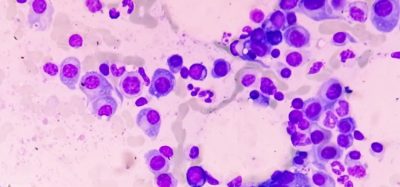Blood pressure drug slows aortic dilatation in Marfan syndrome
Posted: 30 August 2018 | Mike Stones | No comments yet
“Our finding of reduced aortic dilatation with irbesartan, over and above standard medical therapy, suggests an important clinical effect that may prevent complications and ultimately delay or obviate the need for surgical intervention in patients with Marfan syndrome,” said Dr Mullen.


The finding of reduced aortic dilatation with irbesartan, over and above standard medical therapy, suggested an important clinical effect that may prevent complications and ultimately delay or avoid the need for surgical intervention in patients with Marfan syndrome.
Children and young adults with Marfan syndrome exhibited a slower rate of enlargement or dilatation of the aorta after receiving a drug to lower blood pressure, revealed research presented recently at the European Society of Cardiology (ESC) Congress.
The inherited condition Marfan syndrome affects one in 5,000–10,000 people, causing the elastic fibres in the body to become too stretchy, and patients may have very long arms and legs. The body’s main artery, the aorta, progressively enlarges, which may lead to tears, rupture, and death. To protect sufferers, surgery to replace the aortic root may be performed when dilatation reaches 4.5 – 5 cm. Consequently, slowing aortic dilatation in Marfan syndrome is an important treatment objective.
Dr Michael Mullen, principal investigator, St Bartholomew’s Hospital, London, said: “The trial showed a clinically-important reduction in the rate of aortic dilatation in children and young adults with Marfan syndrome treated with irbesartan, potentially delaying the need for elective surgery and reducing the risk of complications and death.”
Previous studies have shown that beta-blockers, angiotensin-converting enzyme inhibitors, and angiotensin II receptor blockers may reduce the progression of aortic dilation and its complications. But up to 50% of patients with Marfan syndrome cannot tolerate beta-blockers because of their side effects.
Cannot tolerate beta-blockers
The Aortic Irbesartan Marfan Study (AIMS) was the first randomised trial to test whether the angiotensin receptor blocker irbesartan, a medication used in some patients with high blood pressure, reduces the rate of aortic root dilatation in Marfan syndrome. The trial involved 192 patients, aged between six to 40, from 22 centres in the UK. All patients received a beta-blocker if tolerated. Patients were randomly allocated to irbesartan once daily (150–300 mg depending on body weight) or placebo.
In both treatment groups the median age of participants was 18 years, with a quarter aged between six and 11 years. More than half (56%) took beta-blockers during the study. Aortic diameter was assessed using transthoracic echocardiography at baseline and at yearly intervals for up to five years.
Transthoracic echocardiography
During the five-year follow-up study, while the aorta continued to enlarge in both groups, the rate of dilatation was slower in the irbesartan compared with the placebo group (0.53 mm versus 0.74 mm per year, respectively). That represented a statistically significant reduction of 0.22 mm per year. The rate of adverse events – including the need for cardiac surgery to replace the aortic root – was similar in the two groups.
“Our finding of reduced aortic dilatation with irbesartan over and above standard medical therapy suggests an important clinical effect that may prevent complications and ultimately delay or obviate the need for surgical intervention in patients with Marfan syndrome,” said Dr Mullen. “Importantly, irbesartan was well tolerated, even in children.”
The AIMS was sponsored by the Royal Brompton and Harefield NHS Trust, London, and led by Dr Mullen, consultant cardiologist at St Bartholomew’s Hospital and Royal Brompton and Harefield NHS Trust, London.
Meanwhile, the ESC Congress took place between 25 – 29 August 2018 in Munich, Germany.
Related topics
Related organisations
European Society of Cardiology, Royal Brompton and Harefield NHS Trust, St Bartholomew’s Hospital









